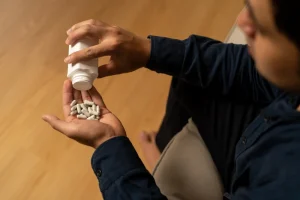
The toxins can impact the nerve cells and interfere with their function. Anything from sniffing paint, glue, or various inhalants can have such an effect. This condition may not be life-threatening, but if left untreated, it can cause permanent damage.

Types and symptoms of alcohol-related neurologic disease
Alcohol-induced peripheral neuropathy is a common complication of alcohol use disorder.Excess alcohol consumption can also result in malnutrition and vitamin deficiencies that have a damaging effect on nerves. Experts believe that chronic alcohol intake leads to oxidative stress, https://ecosoberhouse.com/ which then causes neuronal damage. This damage affects signaling functions, causes nutritional deficiency, and interferes with the endogenous antioxidants (metabolism) in the human body. A healthcare professional can offer support for people with alcohol use disorder.

Enhancing Healthcare Team Outcomes
- Caspases, or cysteine-aspartic acid proteases, are a family of cysteine proteases, which play an essential role in apoptosis (programmed cell death), necrosis and inflammation.
- Alcoholic neuropathy signs and symptoms can progress gradually and are usually subtle at first.
- Originally from Boca Raton, Florida, Danny moved to Denver to study at the University of Colorado and earned a master’s degree in counseling.
- Alcohol-induced peripheral neuropathy is a common complication of alcohol use disorder.Excess alcohol consumption can also result in malnutrition and vitamin deficiencies that have a damaging effect on nerves.
- In addition, a support group can help you cope with the life changes you’re experiencing as a result of your condition.
Alcoholic neuropathy, also known as alcoholic peripheral neuropathy, refers to damage of the nerves due to chronic and excessive alcohol consumption. Affected nerves include the peripheral nerves, primarily located in the arms and legs, and the autonomic nerves, which help regulate our internal body functions. About 46% of chronic alcohol users will eventually develop this condition. As yet there is no effective therapeutic intervention available for relieving the neuropathic pain due to chronic alcohol consumption. In one clinical study, aimed at studying distinct clinicopathologic features of alcoholic neuropathy, 64 patients were assessed.

What are the symptoms of peripheral neuropathy?
- Pain from peripheral neuropathy is usually the most disruptive symptom, but medications or other treatments may help.
- And a doctor may use brain-imaging techniques to monitor treatment over time.
- Deficiency of vitamins other than thiamine may also contribute to clinical features of alcoholic neuropathy.
Call for an appointment with your provider if you have symptoms of alcoholic neuropathy. Impotence, diarrhea, constipation, or other symptoms are treated when necessary. These symptoms often respond poorly to treatment in people with alcoholic neuropathy.

Other studies have shown a direct, negative effect of alcohol and its many metabolites on the nervous system. Axonal degeneration and demyelination of neurons were seen in both humans and lab mice receiving alcohol. The cause is a diverse multifactorial process caused by damage by free radicals, the release of inflammatory markers, and oxidative alcohol neuropathy stages stress. The only way to prevent alcoholic neuropathy is not to drink excessive amounts of alcohol. Treatment for alcoholism may include counseling, social support such as Alcoholics Anonymous (AA), or medicines. Sensory symptoms, caused by damage to sensory nerves, usually begin in the feet before progressing to the legs, hands, and arms.
